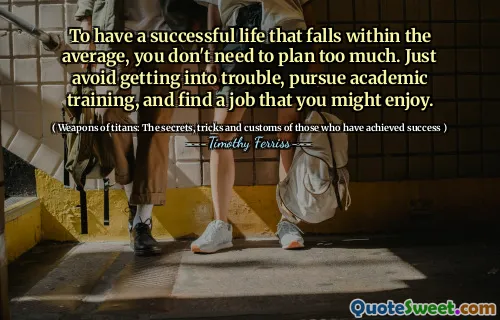
You cannot reason someone into believing something they haven't reasoned about themselves.
This quote emphasizes the fundamental importance of personal exploration and internal reasoning in shaping one’s beliefs and perspectives. Often, when attempting to influence or persuade others, we tend to focus on presenting logical arguments or factual information. However, if a person hasn't engaged in their own reasoning process, these external attempts are unlikely to succeed. True understanding and conviction come from within; individuals need to arrive at their own conclusions through reflection and critical thinking rather than simply being told what to believe.
In the context of personal development and effective communication, this insight reminds us to respect others' autonomous thinking processes. Rushing to impose our viewpoints without encouraging genuine contemplation may lead to superficial agreement or resistance. It underscores the importance of creating space for self-discovery, asking questions that provoke thought rather than giving direct answers. When someone reasons through issues on their own, their beliefs become more deeply rooted, resilient, and authentic.
This idea also aligns well with principles of motivational psychology and adult learning, which stress the importance of intrinsic motivation and personal agency in change. If we aim to inspire or motivate someone, fostering their curiosity and encouraging independent inquiry is often far more effective than prescriptive persuasion.
Reflecting on this, I recognize how sometimes in our eagerness to help others or share our views, we overlook the value of personal reasoning. Genuine transformation and understanding emerge when individuals confront their beliefs, challenge assumptions, and develop their own insights. Recognizing this underscores the importance of patience, empathy, and supporting autonomous thinking in our interactions.
Ultimately, empowering people to reason on their own leads to more meaningful and lasting change, both in personal growth and in collective progress. This awareness can guide us in building more effective, respectful, and constructive dialogues.
---Weapons of Titans: The secrets, tricks, and customs of those who have achieved success--- by ---Timothy Ferriss---






